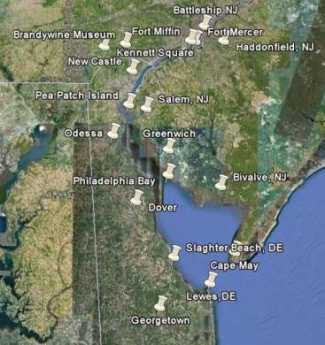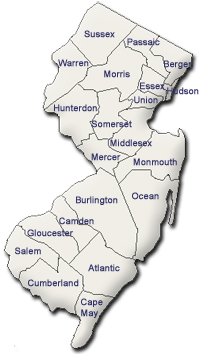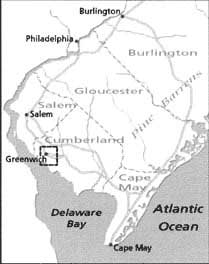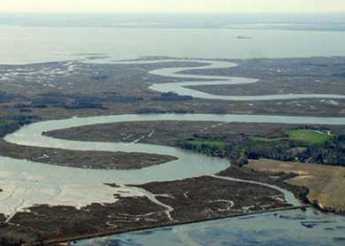Related Topics
Philadelphia Legal Scene
The American legal profession grew up in this town, creating institutions and traditions that set the style for everyone else. Boston, New York and Washington have lots of influential lawyers, but Philadelphia shapes the legal profession.
Historical Preservation
The 20% federal tax credit for historic preservation is said to have been the special pet of Senator Lugar of Indiana. Much of the recent transformation of Philadelphia's downtown is attributed to this incentive.
City of Rivers and Rivulets
Philadelphia has always been defined by the waters that surround it.
Sights to See: The Outer Ring
There are many interesting places to visit in the exurban ring beyond Philadelphia, linked to the city by history rather than commerce.
Revolutionary Philadelphia's Patriots
All kinds of people were patriots in 1776, and many of them were all mixed up about what was going on and how they stood. Hotheads in the London Coffee House stirred up about an inoffensive Tea Act, Scotch-Irish come here to escape the British Crown, the local artisan class and the local smuggler class, unexpectedly prospering under non-importation, and the local gentry -- offended to be denied seats in Parliament like other Englishmen. Pennsylvania wavered until Ben Franklin stepped forward with a plan.
Land Tour Around Delaware Bay
 Start in Philadelphia, take two days to tour around Delaware Bay. Down the New Jersey side to Cape May, ferry over to Lewes, tour up to Dover and New Castle, visit Winterthur, Longwood Gardens, Brandywine Battlefield and art museum, then back to Philadelphia. Try it!
Start in Philadelphia, take two days to tour around Delaware Bay. Down the New Jersey side to Cape May, ferry over to Lewes, tour up to Dover and New Castle, visit Winterthur, Longwood Gardens, Brandywine Battlefield and art museum, then back to Philadelphia. Try it!
Favorite Reflections
 In no particular order, here are the author's own favorites.
In no particular order, here are the author's own favorites.
New Jersey (State of)
 The Garden State really has two different states of mind. The motto is Liberty and Prosperity.
The Garden State really has two different states of mind. The motto is Liberty and Prosperity.
Greenwich, Where?
 |
| Greenwich NJ |
If you sail north up the Delaware Bay, you would go past Rehoboth, Lewes, Dover, New Castle, Wilmington -- on the left, or Delaware side. On the right, or New Jersey side, it's a long way from Cape May to Salem, the first town of any consequence. That is, the Jersey side of the riverbank is still comparatively uninhabited. When the first settlers came along, with vast areas to choose among, it might have seemed attractive to settle on the Delaware side, because the peninsular nature of what is now called Delmarva (Del-Mar-Va) would provide land access to two large navigable bays, the Delaware, and the Chesapeake. To go all the way up the Delaware to what is now Pennsylvania would give trading access to a whole continent, so that eventually proved to be where immigration was headed. But as a matter of fact, the marshy Jersey shore seemed more attractive for settlement by the earlier settlers.
A settler has to think about starving the first year or two, because trees have to be cut down, and stumps pulled up before the land can even be plowed. After that, comes planting and growing, then finally harvesting. Trees, behind which Indians can hide, are a bad thing all around in the eyes of a settler. The flat swampy meadows of the Jersey bank were just exactly what the Dutch knew how to manage. Dam up the creeks and drain the ground, and you will soon have lots of lands ready for the plow, without any confounded trees. By the end of the seventeenth century, the English who had made the mistake of settling in rocky Connecticut finally saw what the Dutch were able to do, and came down to take it away from them.
 |
| Greenwich scenery |
That's why there is a Salem, New Jersey, and also a Greenwich, New Jersey. Greenwich ( around here they pronounce it green-witch) had 870 residents at the last census. It is one of the cutest little colonial villages you are likely to encounter. The local historians refer to it as an unreconstructed Williamsburg, drawing prideful attention to the fact that these houses were really built in the colonial period, and are in no way imitation reconstructions. The isolated charm of this place is in large part due to being surrounded by a maze of wandering creeks, so visitors by land travel don't get there in time for lunch unless they take great care to follow a local road map. If you arrive by water, it's no problem; just navigate up the crooked and twisting Cohansey River.
Although pioneer settlement was much earlier, the oldest house still standing in that rather damp area was built in 1730. Things are pretty much the way they were before the American Revolution because the Calvinists who settled here were not prepared for the Jersey mosquito, which obviously is abundant in such a marshy area. With the mosquito comes relapsing (Vivax, malaria, black water (Falciparum) malaria, and Dengue Fever (graphically known locally as break-bone fever). As a matter of fact, encephalitis is also mosquito-borne. When you don't understand the insect carrier situation, survival in such an environment depends on local fables and lore, like going to the mountains for the summer after the planting season, and only returning at harvest time. That sounds to a New Englander newcomer like a superstitious cloak for lazy living, especially since masses of fish come up the river in teeming waves, looking for mosquitoes to eat. So, Greenwich is charming, but it never was thriving.
Working hard to find something to say about the town, it would appear that Paul Revere himself came riding into Greenwich in December 1774, urging the town to join their Boston relatives in the destruction of tea belonging to the British East India Company. Greenwich accordingly had a public tea burning on December 22. Since the more notorious Boston tea party took place on December 16, 1773, and the British Tea Act was passed in May, 1773, it is not exactly accurate to say the rebellion spread like wildfire. One has to suppose that the inflammatory tale told to the local farmers by Paul Revere was likely a little enhanced, since a careful recounting of the events in Boston suggests a number of ways the uproar might have been avoided if Samuel Adams and his friends had been less provocative. Or if Massachusetts Royal Governor Thomas Hutchinson had been less flighty. Or for that matter, if Benjamin Franklin had restrained himself when he got hold of Hutchinson's letters at a critical moment when he was in London. In retrospect, the best model for behavior was provided by the Royal Navy; the whole Boston Tea Party was surrounded by armed British naval vessels, who did not lift a finger throughout the demonstration.
Anyway, little Greenwich had its minute of fame with a tea burning. Otherwise, it has had a very quiet existence for three centuries.
REFERENCES
| Paul Revere & The World He Lived In | Amazon |
Originally published: Friday, June 23, 2006; most-recently modified: Tuesday, May 21, 2019